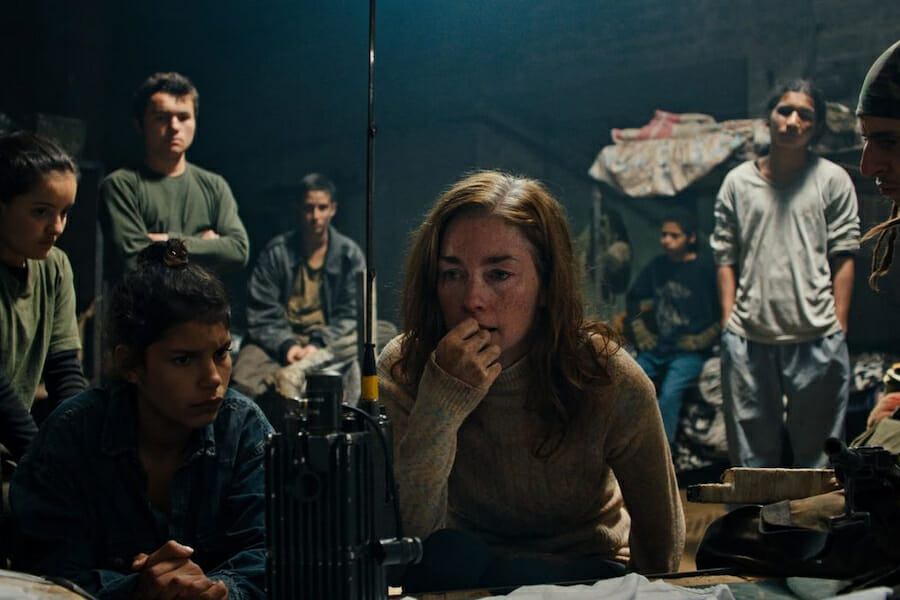
‘Monos’ Review
What does it mean to fight for a cause? What if one has no casus belli? What if no one does? Such are some of the themes explored in Alejandro Landes’ Monos.
Monos follows 8 teenage soldiers through the Andes mountains and Amazon rainforest of Colombia. At the film’s start, they are trained by a commando (the barrel-chested, first-time actor Wilson Salazar), but are mostly left to their own devices. Their main objective is holding an American hostage (Julianne Nicholson), presumably for some undefined, future ransom.
Everything the niños soldados do is wrapped in ambiguity. We, the audience, never even learn what the ultimate goal of the guerilla group is. Unsurprisingly, the adolescent antiheroes are far more compelled by their carnal and violent impulses than whatever their given assignment is. The lack of discipline leads to a flurry of professional failures, leadership changes, and shifting loyalties.
The film works as a general metaphor for the folly of war, but it really serves as a portrait of the history of Colombia. South America’s 2nd largest nation has been awash in near-perpetual violence (which started with a civil war literally called La Violencia) for nearly a century. During this dark time, leftists, conservatives, guerilla groups, the military, the police, the cartels and bands of armed farmers have all been committing atrocities against each other and the civilian population, generally with no real motive other than money or power. Too often, the politicians and other public servants have thrown the public good to the side in order to embezzle and receive cartel kickbacks (small wonder Colombia is one of the 12 most unequal countries in the world). Even when Colombia appears to be taking steps towards peace, greed and broken governmental promises inevitably erode it. The pacing and plot of Monos emulates this perpetual stalemate.
The ultimate victims of la violencia are the children. Constant warfare has robbed countless thousands of Colombian children of their parents. Colombia has been the 6th largest international adoptee source country for American parents (the U.S. is the destination country for about half of all international adoptees), despite only being the 29th most populous country, with the 112th lowest median age. One Colombian armed group alone, FARC, has recruited over 11,000 child soldiers over the past half-century. The fictitious child soldiers of Monos embody the nihilism that this environment creates. Every time one of the characters dreams of a better future, they are slapped in the face with violent reality; one of the characters proclaims, “I want to dance on TV,” only to be promptly responded to with a mortar round.
From a technical standpoint, Monos is a masterful achievement for the 39-year old Alejandro Landes. It’s a film that succeeds by being much more steeped in mood than plot; the dialogue becomes increasingly sparse as the characters descend into (literally) howling madness. This directorial choice makes sense, given that the lives and motives of the protagonists are as murky as jungle canopy. Landes’ camera angles, hostage video sequences, and brief, intimate character shots give the film a near-documentary feel. The Amazonian and particularly cloudy Andean landscape shots really elevate the emotional resonance. A waterfall underwater-sequence near the film’s end is among some of the most exciting camera work that one can behold on screen. Even the soundtrack goes above and beyond to transport viewers into a mindset of anarchic terror. Cinephiles can only hope to see much more from the young director and cast in the years to come. In the meantime, run to see this newest addition to Colombia’s many cultural masterpieces on the big screen.

